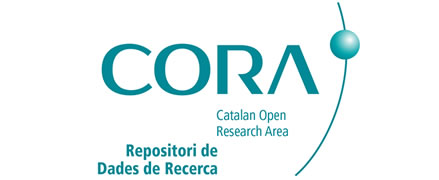Open Science
What is Open Science?
Open Science is a movement whose purpose is to publish scientific research in open access, so that it reaches all citizens. Open Access to scientific information consists of publishing and/or depositing scientific production on the network, respecting 3 considerations:
- The exploitation rights aren't assigned to third parties (publishers)
- Free access must be guaranteed through repositories
- Content reuse is facilitated through Creative Commons licenses
The Open Acces (OA) emerged as an initiative whose purpose was to offer information as a common good for society, as an alternative to the traditional method of publishing by publishers and to promote the use of new technologies.
If you deposit your scientific publications in a repository you can get:
 |
 |
 |
 |
 |
| Immediate availability and wide visibility | Recoverable content standardized metadata, through scientific servers | Wide dissemination and the possiblity of inclusion in international directories | Increased impact on statistics and metrics | Preserving documentation and accessing it through unique and persistent identifiers |
IQS Library recommends you...
In compliance with the provisions of the Foment de l'accés obert a la Universitat Ramon Llull, we recommend and help you to publish your scientific research in Open Access.
| Currently, agreements have been negotiated with the publishers Springer Nature, Wiley, Emerald, Royal Society of Chemistry (RSC) and the American Chemical Society (ACS). The Universitat Ramon Llull, as part of the transformative agreement, has signed an Open Access Agreement with these publishers, which will allow URL research staff to publish in selected journals without paying APC fees. | Publish in Open Access |
| Universitat Ramon Llull, following the recommendations of the European University Association, undertakes that members of its academic community deposit their academic publications (journal articles, thesis, papers, communications, scientific and technical documents, books, etc.) in a repository in open access. URL provides you the institutional DAU repository to deposit your scientific publications, from the moment of publication and up to 6 months later, at most. | DAU, what is it? |
|
If you have to make a Data Management Plan (DMP) in eiNa DMP and publish the research data of your research project following the FAIR principle, in the CORA.RDR repository you can consult the Research Data information. |
Research Data |
Why do you have to publish or deposit in OA?
You should keep in mind that if your research has been funded with public funds, it will be a mandatory requirement:
-
Ley Orgánica 2/2023, de 22 de marzo, del Sistema Universitario (LOSU): artículo 12 para el Fomento de la Ciencia Abierta y la Ciencia Ciudadana.
-
Ley 17/2022, de 5 de septiembre, por la que se modifica la Ley 14/2011, de 1 de junio, de la Ciencia, la Tecnología y la Innovación (LCTI): artículo 37 de Ciencia abierta
-
Estrategia Catalana de Ciència Oberta: compartir el coneixement
![]() If you have any questions or need help publishing your articles on Open Acces, contact IQS Library.
If you have any questions or need help publishing your articles on Open Acces, contact IQS Library.
How can I publish or deposit in OA?
The traditional system is the commonly established model, where the reader pays to be able to consult the article. In this model, publishers decide, through their open access policies, whether an article can be deposited in a repository and which version can be archived (pre-print, post-print or published version).
One possibility is to archive or deposit the published article or the final version of the peer-reviewed manuscript in a digital repository before, at the same time, or immediately after publication. In some cases, publishers request access to the document after the embargo period. This model is also known under the name of "self-archiving". At IQS, we have the DAU institutional repository.
Another possibility is the publication of the article immediately in an open access journal. In this model, the payment for publication does not fall to the readers but to the authors. The most common business model is Article Processing Charges (APCs), which are usually borne by the university/institution or the research funding body. See how to publish in open access.
Open Access repositories
Repositories are digital systems where different documents are deposited for preservation and access to them, where information is controlled by metadata and for all this information to be easily recoverable. With Open Access repositories, information can be viewed freely and can even be reused with Creative Commons licenses.
The Open Access repositories in which IQS Library participates are the following ones:
Els repositoris Open Access als quals Biblioteca IQS hi participa són els següents:
|
|






